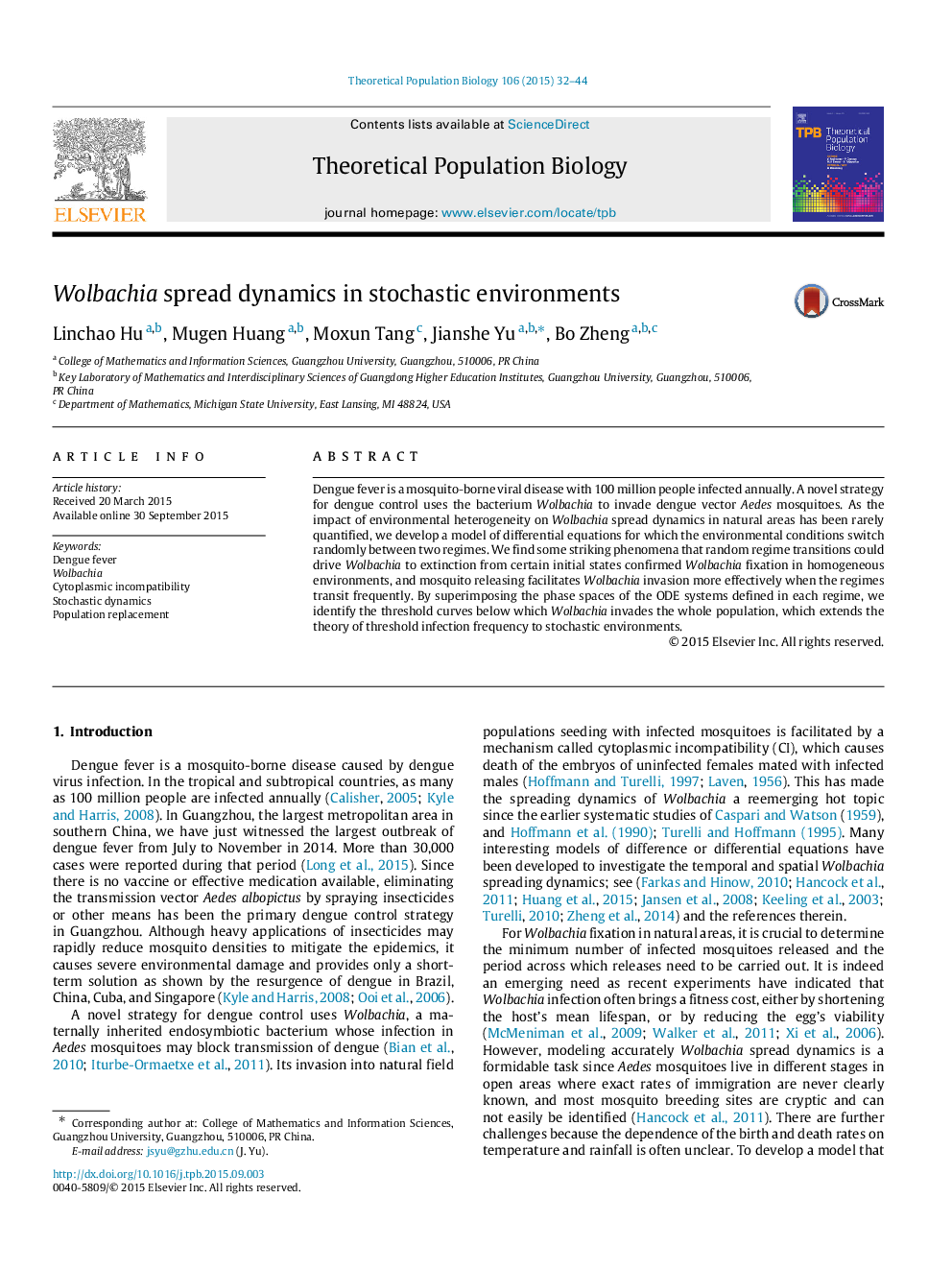| Article ID | Journal | Published Year | Pages | File Type |
|---|---|---|---|---|
| 4502307 | Theoretical Population Biology | 2015 | 13 Pages |
Dengue fever is a mosquito-borne viral disease with 100 million people infected annually. A novel strategy for dengue control uses the bacterium Wolbachia to invade dengue vector Aedes mosquitoes. As the impact of environmental heterogeneity on Wolbachia spread dynamics in natural areas has been rarely quantified, we develop a model of differential equations for which the environmental conditions switch randomly between two regimes. We find some striking phenomena that random regime transitions could drive Wolbachia to extinction from certain initial states confirmed Wolbachia fixation in homogeneous environments, and mosquito releasing facilitates Wolbachia invasion more effectively when the regimes transit frequently. By superimposing the phase spaces of the ODE systems defined in each regime, we identify the threshold curves below which Wolbachia invades the whole population, which extends the theory of threshold infection frequency to stochastic environments.
